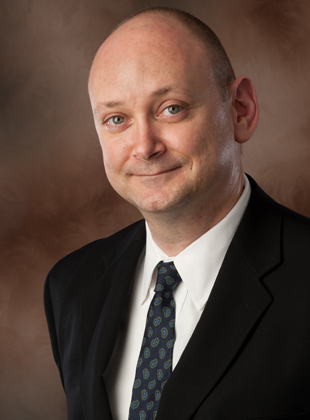Partner Program Spotlight: Through Thick & Thin, Students Engage With Assumption University’s New Model Senate Project

Dr. Greg Weiner, Associate Professor of Political Science and Director of the Daniel Patrick Moynihan Center
Dr. Gregory Weiner was searching for a new way to get students engaged with founding principles and political thought during the 2019-2020 academic year. Then Weiner, director of Assumption University’s Daniel Patrick Moynihan Center, a JMC partner program, struck on an idea: a model senate project. Give students a forum in which to debate important contemporary topics while putting into practice the historical ideas from the liberal arts curriculum.
It was an immediate success. “We received twice the number of student participants as we anticipated,” Weiner says, “with zero attrition, even when students moved back home due to the pandemic.” Such student dedication is the norm with activities in JMC’s partner programs.
Assumption’s liberal arts curriculum is indicative of what many similar schools offer: introductions to the work of great thinkers from Sophocles and Aristotle to Alexander Hamilton. What such material risks missing, though, is a direct connection to the pressing issues of today. What’s missing is the So What?
Weiner’s program trusts that students can learn that So What? very quickly. And they do, in this program and others. What once seemed to be abstract ideas actually do hold a central place in how we carry out our nation’s civic life. Projects like Assumption’s Model Senate elevate class texts to the level of practical reasoning and guiding principles. They aren’t just relevant—they’re central to how we conduct our politics.
Students accomplish this growth independently, says Debbie O’Malley, JMC fellow and Moynihan Center Associate Director. “They realized on their own how critical these insights were to the points they were trying to make.” Historical texts were no longer just texts—they were now living, breathing ideas that shaped political decision-making. “They were able to see that ideas are essential to discussions concerning political action, which is exactly what we wished to demonstrate with this project.”
Even as campus life was put on hold and students moved back home, the Model Senate thrived. Debates were held over Zoom with the same intensity and rigor as they had in person.
Other schools have taken note and been inspired by the success of Assumption’s Model Senate. One is Christendom College, where the Tocqueville Forum on Liberal Democracy has just received a partner program seed grant. “Upon learning of the success of the Model Senate Project,” explains O’Malley, “the political science department at Christendom College decided to start their own model senate.”
The two programs will be collaborating and sharing resources throughout the coming year—a perfect example of how JMC’s community of professors supports each other in our mission to improve post-secondary civic education.
Learn more about Assumption’s Model Senate >>
![]()
![]() Follow us on Facebook and Twitter for updates about lectures, publications, podcasts, and events related to American political thought, United States history, and the Western tradition!
Follow us on Facebook and Twitter for updates about lectures, publications, podcasts, and events related to American political thought, United States history, and the Western tradition!
Want to help the Jack Miller Center transform higher education? Donate today.

